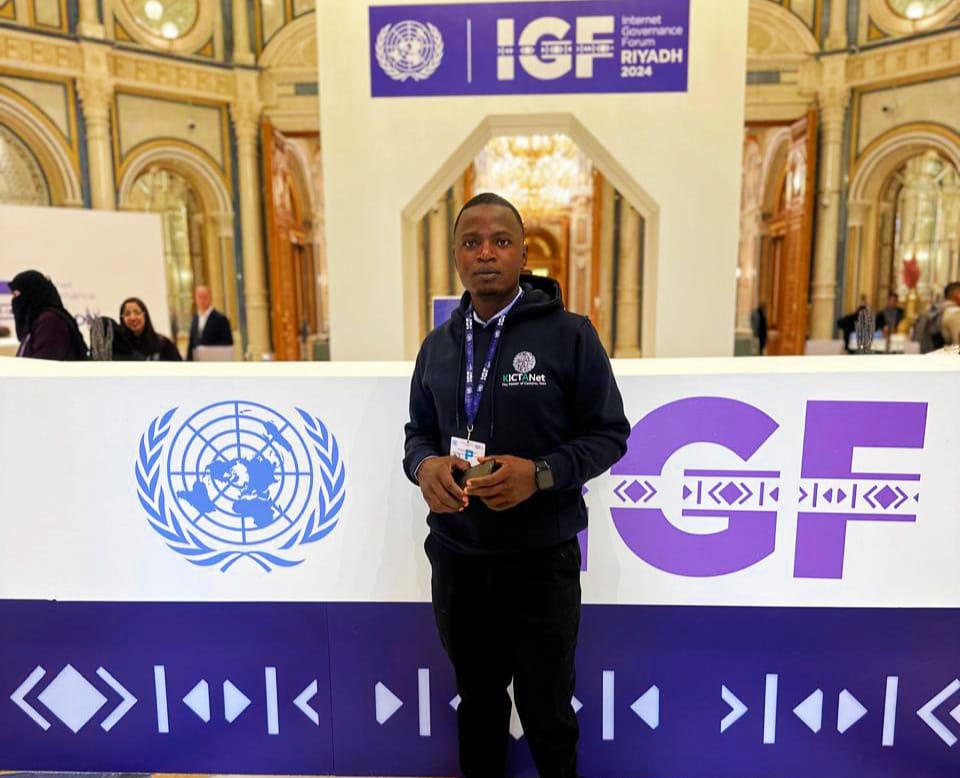The conversation surrounding disability digital inclusion and accessibility is not just one for those who identify as disabled; it is a call to action for everyone. Whose fight is this, and where should these critical discussions take place? The truth is that disability is the only “club” that anyone can join at any point in their lives. Accessibility, fundamentally, is about the choices we make in our daily lives—the choices that lead us to opt for paths that are easier, more effective, and less burdensome. This simple analogy underscores the essence of accessibility, which ultimately lies in the right for everyone to belong and participate fully in all spaces.
As we gather at the 19th Global Internet Governance Forum (IGF2024) in Riyadh, Saudi Arabia, the theme this year, “Building our Multistakeholder Digital Future”, resonates deeply within the context of inclusion. It not only emphasizes the importance of belonging but also highlights the ownership of the Internet, advocating for a space where persons with disabilities (PWDs) have an equal voice. It envisions an Internet that is inclusive and grounded in its core principles, where everyone—regardless of ability, gender, or socioeconomic status—has an equal stake and the opportunity to contribute to the digital dialogue.
Disability, within the IGF, is not only a unique aspect but also a cross-cutting concern that intersects with various facets of digital inclusion. This intersectionality delves into the heart of the values that guide Internet governance and the vital goal of fostering a decentralised, multistakeholder environment, where every participant can contribute equally and meaningfully.
To maintain this ethos of multistakeholderism, every sector of the Internet ecosystem must be encouraged to play an active role in shaping the future of the digital world. The IGF Dynamic Coalition on Accessibility and Disability (DCAD) has taken significant strides to enhance the participation of persons with disabilities in these discussions, offering fellowship travel grants to select individuals. This initiative not only amplifies the voices of PWDs but also enriches the dialogue around digital spaces, ensuring that their perspectives are heard and valued.
Furthermore, initiatives like KICTANet Digital Accessibility for Persons with Disabilities embody the spirit of collaboration as a necessity for achieving true inclusivity. Recognising that the push for disability inclusion is not solely the responsibility of those with disabilities, but a mutualistic call to championing an inclusive digital landscape.
As we reflect on the progress made thus far in advancing digital inclusion for persons with disabilities, it is essential to acknowledge the strides that have been so far by various stakeholders. However, the journey is far from over. There remains a pressing need for continuous efforts and a concerted focus on ensuring that the voices of all individuals—especially those with disabilities—are heard in discussions about digital access and rights.
Looking ahead, let us embrace a future where digital inclusion is not just an aspiration but a reality for everyone; a digital landscape that values every voice, a world where all individuals can contribute to and benefit from the riches of the digital realm.
Nicodemus Nyakundi is a Digital Accessibility for PWDs Program Officer at KICTANet. He has a background in IT and advocates for the digital inclusion of persons with disabilities.
![]()




